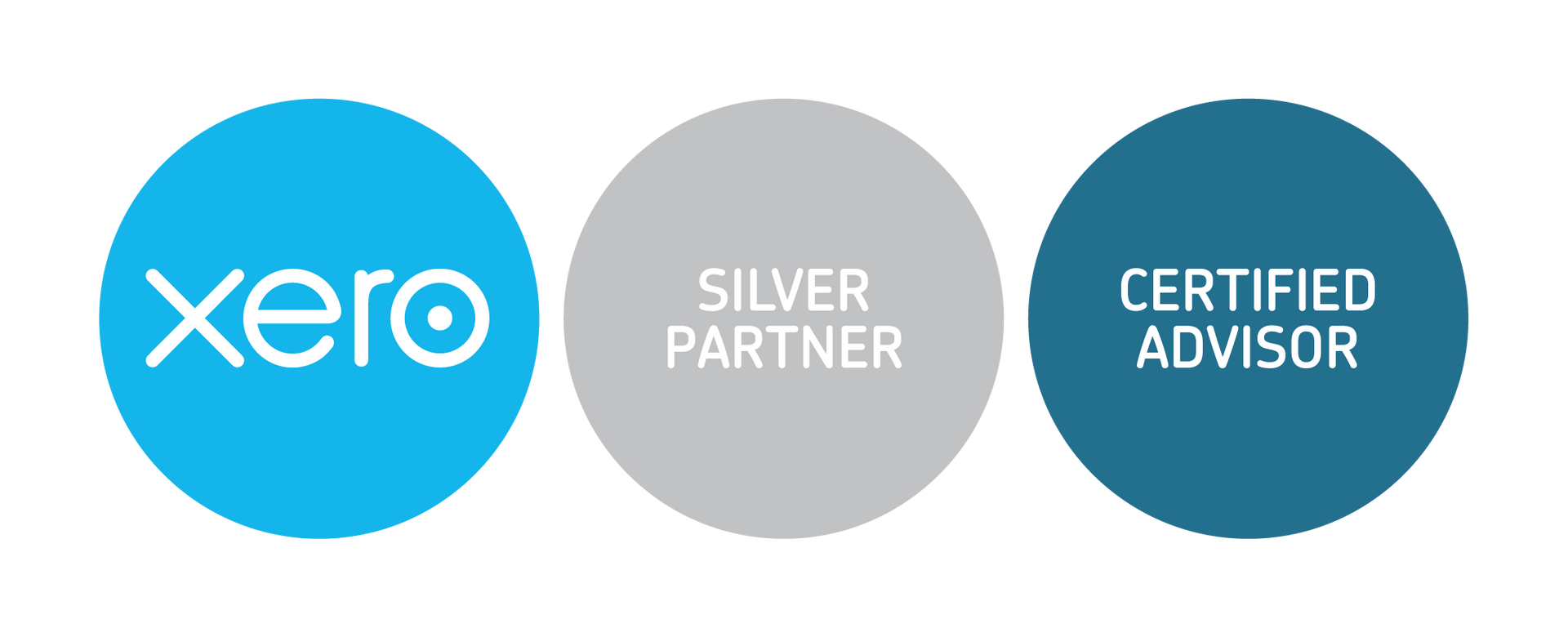Get in touch
0330 043 5743
enquiries@nutshellaccounts.co.uk
Resources, Ideas and Inspiration to Help Your Business Succeed

By Jenny Thomas
•
29 Aug, 2023
I may be biased, but if you haven't moved to the cloud yet, you are years behind! If you're not using cloud accounting software for your small business accounts, then you're making your life much more difficult than it needs to be. The days of having to manually enter accounting data into outdated software programs are long gone. Cloud accounting simplifies the process by providing a range of features that make managing your finances much easier. Let's take a closer look at how.

By Jenny Thomas
•
07 Feb, 2023
It all begins with an idea. Maybe you want to launch a business. MaHiring a remote worker sounds easy, right? Just post an ad, wait for the applications to come rolling in, and then pick the best candidate. But if you've ever actually tried to hire a remote worker, you know that it's not quite that simple. There are a few things you need to take into account before you can find the perfect candidate for the job, and the onboarding and training process can actually be more difficult when it's not face-to-face. Hiring a remote worker takes organisation, strong communication and robust processes. Let's take a deeper dive into each of these three areas so you can be sure you're setting yourself up for success.

By Jenny Thomas
•
07 Feb, 2023
Difficult clients are a drain on your resources and your profits, and they suck all of the joy out of what you do. But how do you go about landing better ones? Better clients are key to a better business, so let's take a look at simple ways to attract higher value clients who appreciate you and pay you what you’re worth. #1 - Get Clear on Your Ideal Client Knowing exactly what you want in a client is half the battle. Once you get clear on what you're looking for, it will be much easier to find it. If you currently have clients you love working with, use them as a model for your ideal client avatar. You can also use your bad clients to define exactly what you don't want. A red flag list can be very useful. Some things to consider are: Attitude Niche Communication skills Purchasing power Business size Goals Defining your ideal client will help you to get your message and offer right, so take your time with this step and really do your research. #2 - Find Out Where Your Ideal Clients Hang Out It's important to find out where your ideal clients hang out so that you can connect with them. Do they favour Twitter, LinkedIn or Facebook? Which topics are they talking about? Which hashtags do they use? What time of day do they post? Do they have their own groups that you can join? You need to get clear on these questions so that you know which channels to focus on. #3 - Connect with Your Ideal Clients Once you know where your ideal clients hang out, it's time to create a presence for yourself there. Try joining some groups or following some influencers in that channel. A great way of connecting is by responding positively to other people's content and joining in on conversations. Remember, business is all about building relationships so it's important to connect authentically. If you're just starting out, don't feel like it has to be all about selling yourself or your services right away. # 4 - Deliver Valuable Content Once you've got yourself a presence on the right channels, it's time to start delivering value. Your ideal clients aren't going to want anything from you if they don't know who you are or what your business is about yet. If all that exists of your business online is a website full of button-to-buy pages, it can be hard to attract high-quality clients. So how do you deliver value? Think about the questions your ideal client might have and start answering them on social media, in groups and through blog posts or videos. Free resources such as ebooks or webinars are especially valuable and position you as an authority in your niche. You need to help people before they're ready to give you anything back so that when they are looking for a product or service, they think of you. #5 - Start Conversations Each piece of content you create should be designed to spark conversations with prospective clients. However, you don't have to go in for the hard sell straight away. Focus on finding more about their particular needs and how you can help them. This will help to build rapport and trust. Then, you can begin nurturing your prospects along your customer journey so that they become paying clients. Summary In order to attract higher quality clients, it’s important to find out who your ideal client is and what they need. This will enable you to target them directly with your marketing and create a predictable flow of high quality leads, which in turn gives you far greater control over who you work with. You didn’t start your own business to work with bad clients who cause you nothing but stress and anxiety, so take control of your leads and use the above steps to attract better clients and create a more lucrative business.

By Jenny Thomas
•
21 Nov, 2021
Making decisions is at the core of being an entrepreneur. Your business choices have the power to make or break your company, so knowing how past experiences influence your decision-making is crucial. Of course, the underlying process isn't immediately apparent, and the connections between your past and future decisions can be quite complex. 1. Building Stronger Intuition Intuition can play a significant role when there's not enough information to make an objective decision. The "gut feeling" that informs your choice isn't just a matter of nature - it can be built and conditioned by past experiences. Your memories, habits, and underlying influences form a large part of intuition. Because of that, it's vital to understand the nature of past events and how they reflected on you. But despite what's often promoted as true, gut feeling isn't always right and it can even take you in the wrong direction. But if you can discern some of the factors that influence your intuition, you'll be able to decide whether to listen to the inner feeling or not. 2. Shaping Your Personality Past experiences have a strong influence on how your personality is formed. And many things people like or dislike result from events that left a strong impression. These influences are continually working in our subconscious mind. Whenever you find yourself considering a decision based on personal affinities, you should stop and analyse whether those affinities align with your company's best interests. And if you consciously choose to take your business in a direction that personally bothers you, finding out the underlying reason you feel that way is crucial. We tend not to make decisions that go against our personality. Yet, it might be the right thing to do for our business in some instances. This is especially true if our personal preference stems from some unknown, subconscious source. 3. Remembering Past Experiences What we actually experience isn't the same as what we remember experiencing. Various psychological factors can distort memory, such that the aspects that stick are often only the extreme highs and lows. When drawing from the past to inform your decisions, you shouldn't depend only on such impressions. In many cases, crucial details that could be very useful get left behind and the extremes you remember don't provide sufficient guidance. It's also worth noting that the difference between experiencing and remembering also influences your customers. Same as you, they will rely on the most positive or negative points of their experiences when making a decision. Understanding the Cause of Your Decisions The subconscious influence on even the largest business decisions can't be overstated. There are many situations when objective information and facts will be lacking, and it's necessary to rely on your inner voice. This process will happen whether or not you're aware of it, which is why it's essential to develop an awareness of everything that contributes to your choices.

By 183:785103167 (Jennifer Thomas)
•
15 Nov, 2021
They say that behind every good business is a great accountant, and it’s true! A great accountant does far more than save you money on your tax return - although that certainly is an attractive benefit. Hiring a great accountant isn’t just about remaining compliant; it’s a big step towards improving the financial health of your business and can really help with planning for the future. Here’s how an accountant can help your small business to succeed. Save Time One of the most attractive benefits of hiring an accountant is the relief of not having to do it all yourself. Accounting is notoriously difficult and time-consuming - there’s a good reason why qualified accountants undergo so many years of training. A great accountant will save you many man hours and allow you to get back to growing your small business. A Smaller Tax Bill A great accountant won’t see you pay a penny more in tax than is strictly necessary. Many small business owners, despite their best efforts, end up missing out on tax deductions or incentives. The rules and regulations surrounding taxation are complex and ever-changing, so it’s best to have a qualified professional on your side who can help you to save you as much as possible. Accurate Records It’s important to maintain accurate financial records to ensure that mistakes don’t compound and spiral out of control. A great accountant will ensure that your records are impeccable so that you don’t end up with a tangled web of errors on your hands or worse, mistakes on your tax return that could come back to bite you. Financial Planning and Stability Cash flow can be very tricky to handle and it’s often difficult for business owners to get a clear picture of how much money is entering and leaving each month. An accountant will help you to manage your cash flow and ensure that there’s always enough in the bank to continue operations, even when times are tough. This helps to keep your business stable and running smoothly. You’ll be able to offer both your staff and your clients a consistent and positive experience, maintain high levels of trust and loyalty with both. Furthermore, a great accountant helps you to plan for the future and make sage investments at the right time. They will use their financial acumen to help you to identify areas of improvement and plot for growth, so you’re not taking a shot in the dark. Marketing It may not seem obvious at first that an accountant would be able to help with marketing, but they may in fact be able to advise you on where to spend your money and which practices aren’t generating a worthwhile return on investment. This allows you to focus on the marketing activities that truly drive the needle for your business and cut back on areas that aren’t serving you. Furthermore, cash flow analysis can help you decide when to launch a new campaign and get a clear picture of the results. Financing Your accountant can help you to understand your financing options and weigh up the pros and cons of each. On top of this, they can help you to prepare the best possible case for potential lenders so that you get the best rates possible. All of this can be enormously helpful in terms of business growth. Furthermore, if you have existing debt, your accountant can help you to handle it in the most beneficial way possible for your business. Summary A great accountant is so much more than a number cruncher - they function as a partner and guide to help you make the best possible financial decisions for your business. Whether you’re in the startup phase or looking to grow your business, hiring a quality accountant is a decision you won’t regret.

By Jenny Thomas
•
08 Nov, 2021
Imposter syndrome, unbeknownst to many, is a common condition found in high achievers, including the creative types, entrepreneurs, and more. Business owners suffering from imposter syndrome may have it worst of all. Because if left unchecked, this is a problem that can bury a business deep in the ground. But how do you deal with a problem like imposter syndrome? Tip #1 - Face It The first step to solving any personal issue is to admit that it exists. But with imposter syndrome, acknowledgement isn’t enough. Entrepreneurs have to face it and engage it head-on. A simple trick involves questioning the negative whispers inside one’s head. Imposter syndrome often tells business owners that they can’t do certain things or that they’re not good enough. To confront it, it’s critical to follow up those thoughts with reassuring phrases like perhaps, noted, however, nevertheless, and so on. The idea is to not get hung up on those negative ideas and try to put a positive spin on them. Tip #2 -Separate Feelings from Facts Entrepreneurs that fall prey to imposter syndrome are those that let their emotions guide them in all sorts of situations. Separating feelings from facts can help deal with the issue. Remember, getting a bad feeling or becoming upset after making a mistake is no reason to feel inadequate. Tip #3 -Change the Rules Some business owners create impossible sets of rules. It’s because they try to operate under the assumption that they can’t make mistakes or ask for help. And when they fail, they start to feel like imposters because that’s what the syndrome causes them to think. While it’s important to set rules, you also must guide your business decisions by attainable standards and allow for some breathing room. This applies even to those in leadership positions. Tip #4 - Visualise Success Highly successful people often picture themselves winning. Whether it’s in sports or business, it’s always the same - it’s better to visualise success than spend too much time focusing on a potential impending disaster. It’s also a technique that helps relieve performance anxiety and stress. Tip #5 - Change the Default Response Entrepreneurs that get imposter syndrome often have a negative response to mistakes and failure. For them, any mistake could lead to a negative response and a defeatist attitude. It’s critical to change that response into something healthier. Understand that there are benefits to be gained from losses. Every mistake can be a teachable moment that prevents you from repeating it. It’s a Systematic Process No entrepreneur overcomes imposter syndrome overnight. On the other hand, it’s also not impossible to beat it and prevent it from affecting your business in the future. However, it does require a systematic approach. And you can start with baby steps and gradually improve your response to negative situations and thoughts. Positivity, asking for help, changing the rules – these are all things that can help. Even spending more time visualising success can do a lot of good for someone lacking confidence in their leadership skills.
Get in touch today for a free consultation!
Phone
0330 043 5743
Email us
enquiries@nutshellaccounts.co.uk
Location
Garden Office, 1 Abbey Street, Eynsham, Witney, Oxfordshire, OX29 4TB



© 2024
All Rights Reserved | Nutshell Accounts Limited | Privacy Policy






